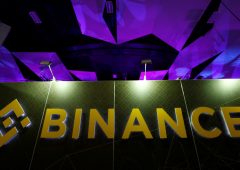Malaysia Opens the Door to Blockchain Experimentation With Launch of Innovation Hub
18.06.2025 22:00 2 min. read Alexander Stefanov
In a move to strengthen its position in the regional fintech race, Malaysia has unveiled a new digital sandbox aimed at nurturing innovation in blockchain and digital finance.
The country’s central bank will oversee the initiative, which offers startups and established firms a space to trial emerging technologies without immediate regulatory pressure.
Prime Minister Anwar Ibrahim introduced the project during the Sasana Symposium 2025 in Kuala Lumpur, framing it as a turning point in Malaysia’s digital transformation strategy. The sandbox, dubbed the Digital Asset Innovation Hub, is designed to encourage experimentation with tools like ringgit-based stablecoins, programmable payment infrastructure, and decentralized supply chain solutions.
“Our mission is to align technology, regulation, and talent in a way that builds a digitally confident Malaysia,” Anwar stated, signaling strong political support for forward-thinking financial innovation.
While Malaysia leans into experimentation, Singapore is drawing sharper regulatory boundaries. In late May, Singaporean authorities warned that any firm offering digital token services outside the country without proper licensing must cease operations by June 30, or face stiff penalties including jail time. There will be no grace period or exemptions, the Monetary Authority of Singapore clarified.
Back in Malaysia, Central Bank Governor Abdul Rasheed Ghaffour emphasized that modernizing the country’s financial backbone is critical. He pointed to major efforts underway, including the revamp of the national payment system (Rentas), a push for regional payment interoperability, and early exploration of tokenized financial instruments.
Malaysia has also been building quiet relationships with the global crypto community. Despite earlier regulatory tensions, Binance gained indirect entry into the market through a minority investment in MX Global — a local exchange operating with government approval.
As neighboring countries take divergent paths, Malaysia appears to be betting that regulatory flexibility, rather than strict enforcement, will be the key to unlocking the next generation of blockchain-driven financial services.
-
1
Coinbase Brings Cardano and Litecoin to DeFi via New Wrapped Tokens on Base
26.06.2025 18:00 1 min. read -
2
XRP Ledger Sees Sharp Drop in Activity as Key Network Metrics Tumble
26.06.2025 19:00 1 min. read -
3
Top 10 DeFi Projects by Development This Month
28.06.2025 20:00 1 min. read -
4
XRP Ledger Deploys EVM-Compatible Sidechain to Expand Multichain Utility
30.06.2025 21:00 2 min. read -
5
What the U.S. Blockchain Act Means for Crypto’s Future
29.06.2025 18:00 2 min. read
German State-Owned Development Bank Issues €100 Million Blockchain Bond
Germany’s state-owned development bank NRW.BANK has issued a €100 million ($116.7 million) blockchain-based bond, marking one of the largest public-sector entries into digital securities in Europe.
Top 10 blockchains by transaction volume in June 2025
New data highlights a dramatic lead for Solana in blockchain activity for June 2025. According to the figures, Solana processed a staggering 2.98 billion transactions, far outpacing all other chains in the ecosystem.
Top 10 AI and Big Data Crypto Projects by Development Activity
According to new insights from market intelligence platform Santiment, development activity in the crypto sector’s AI and Big Data segment remains strong, with several major projects showing notable GitHub activity over the past 30 days.
XRP Ledger Deploys EVM-Compatible Sidechain to Expand Multichain Utility
The XRP Ledger (XRPL) has officially launched its Ethereum Virtual Machine (EVM) sidechain on mainnet — marking a major milestone in its effort to bridge XRP’s payment efficiency with Ethereum’s smart contract capabilities.
-
1
Coinbase Brings Cardano and Litecoin to DeFi via New Wrapped Tokens on Base
26.06.2025 18:00 1 min. read -
2
XRP Ledger Sees Sharp Drop in Activity as Key Network Metrics Tumble
26.06.2025 19:00 1 min. read -
3
Top 10 DeFi Projects by Development This Month
28.06.2025 20:00 1 min. read -
4
XRP Ledger Deploys EVM-Compatible Sidechain to Expand Multichain Utility
30.06.2025 21:00 2 min. read -
5
What the U.S. Blockchain Act Means for Crypto’s Future
29.06.2025 18:00 2 min. read


